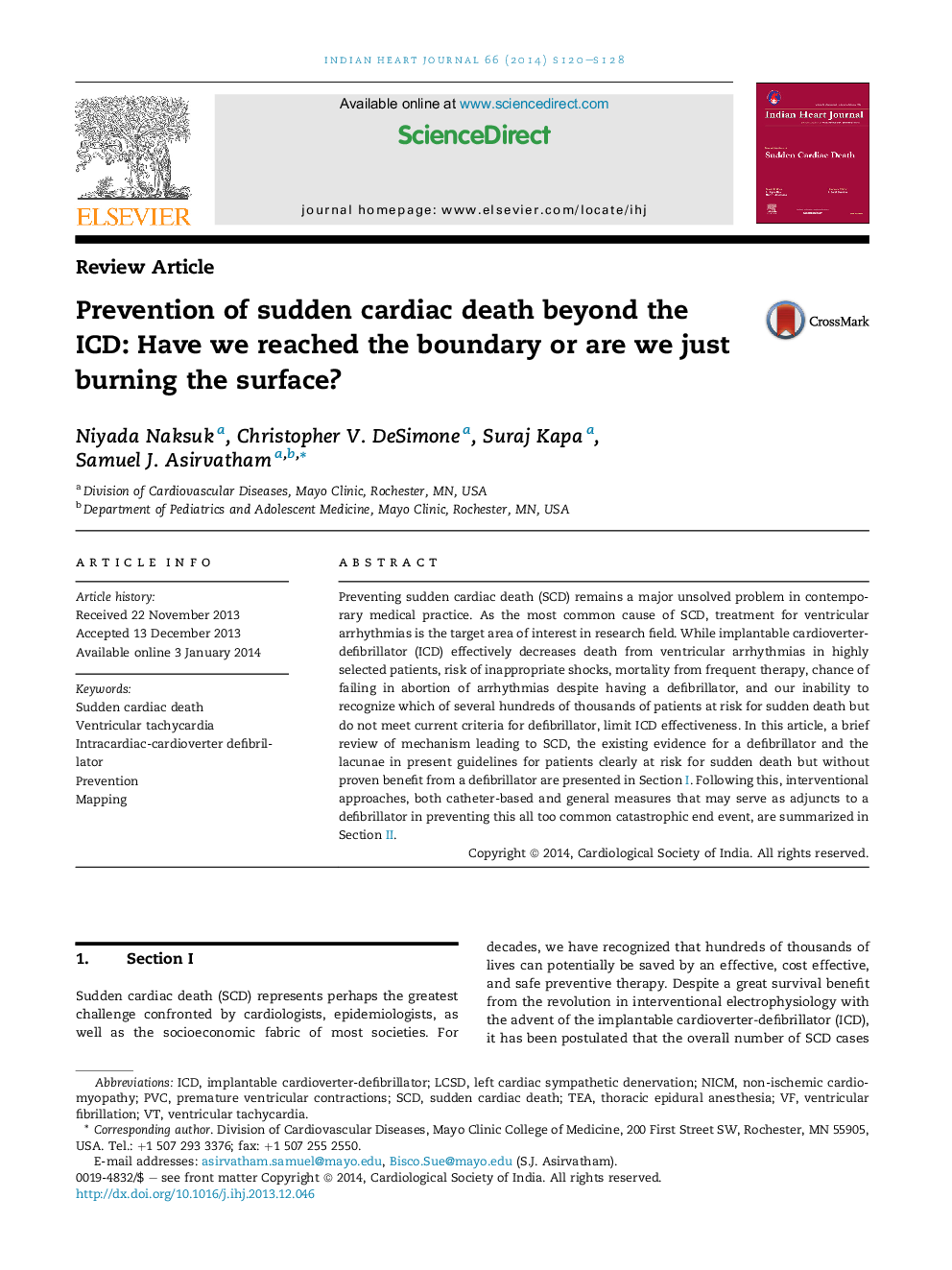| Article ID | Journal | Published Year | Pages | File Type |
|---|---|---|---|---|
| 2927620 | Indian Heart Journal | 2014 | 9 Pages |
Preventing sudden cardiac death (SCD) remains a major unsolved problem in contemporary medical practice. As the most common cause of SCD, treatment for ventricular arrhythmias is the target area of interest in research field. While implantable cardioverter-defibrillator (ICD) effectively decreases death from ventricular arrhythmias in highly selected patients, risk of inappropriate shocks, mortality from frequent therapy, chance of failing in abortion of arrhythmias despite having a defibrillator, and our inability to recognize which of several hundreds of thousands of patients at risk for sudden death but do not meet current criteria for defibrillator, limit ICD effectiveness. In this article, a brief review of mechanism leading to SCD, the existing evidence for a defibrillator and the lacunae in present guidelines for patients clearly at risk for sudden death but without proven benefit from a defibrillator are presented in Section I. Following this, interventional approaches, both catheter-based and general measures that may serve as adjuncts to a defibrillator in preventing this all too common catastrophic end event, are summarized in Section II.
